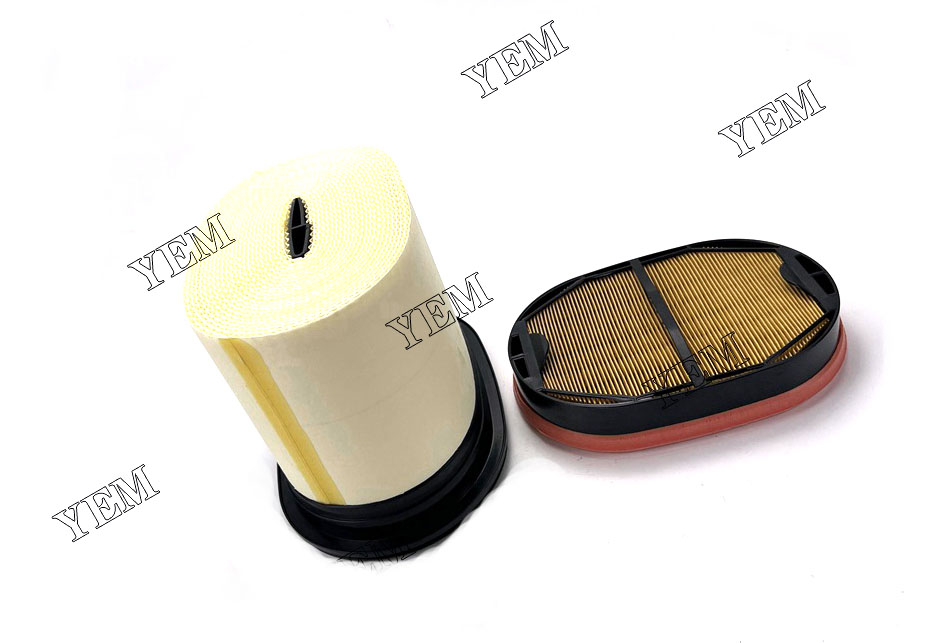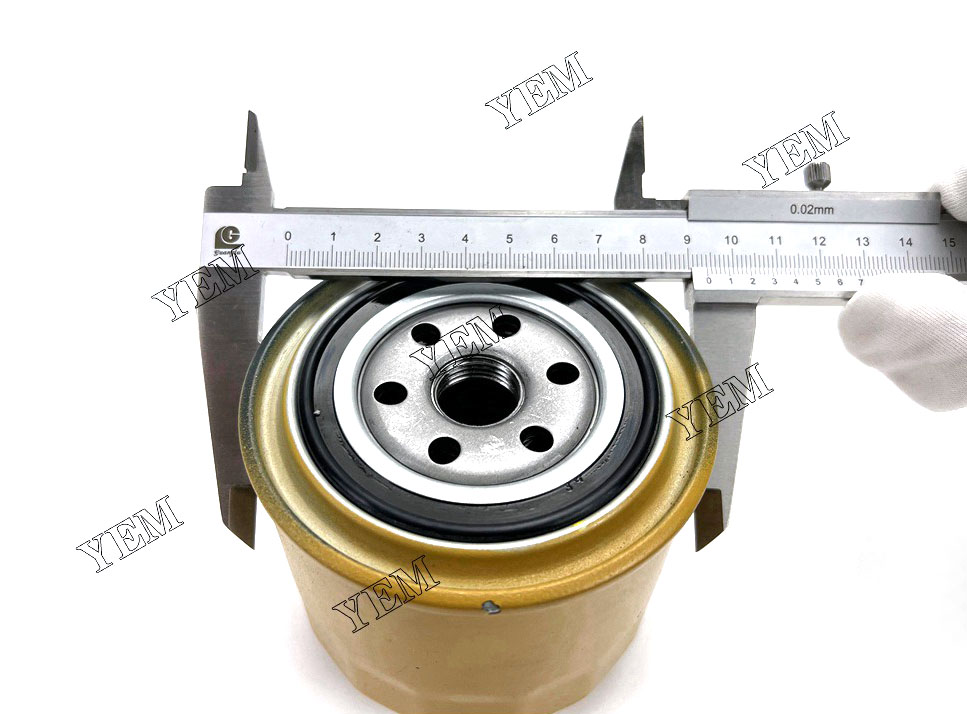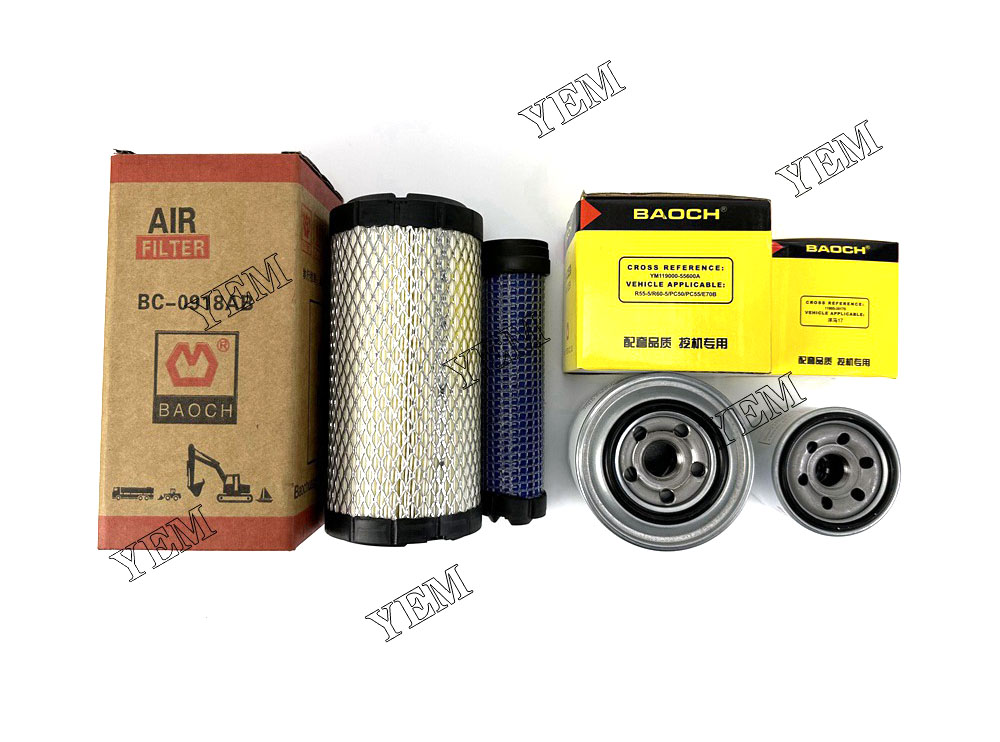The role and principle of the oil filter
The oil filter plays a critical role in an engine by removing impurities and contaminants from the engine oil. Its primary principle is filtration. Here’s a breakdown of the role and principle of the oil filter:
- Protection against contaminants: The engine oil circulates through various components, picking up dirt, metal particles, and other impurities along the way. The oil filter acts as a barrier, capturing these harmful contaminants and preventing them from circulating back into the engine.
- Filtration process: Oil filters typically consist of a canister and a filter element or media. The filter media is designed with microscopic pores that allow the oil to flow through while trapping particles above a certain size. This process ensures that only clean oil reaches critical engine parts.
- Particulate and fluid filtration: Engine oil filters are capable of trapping a wide range of contaminants, including dust, metal shavings, sludge, and even water droplets. Additionally, some advanced filters may include additional features like anti-drain back valves, bypass valves, or magnets to enhance filtration efficiency.
- Extended engine life: By removing harmful particles and contaminants, the oil filter helps prevent premature wear and damage to vital engine components like bearings, pistons, and cylinders. This ultimately contributes to the extended life and optimal performance of the engine.
- Regular maintenance: To ensure the oil filter continues to function effectively, it’s crucial to follow the manufacturer’s recommended maintenance schedule. This usually involves replacing the oil filter at regular intervals, typically during oil change intervals.
In summary, the oil filter’s role is to protect the engine by filtering out impurities and contaminants from the lubricating oil. This principle of filtration helps maintain clean oil flow and contributes to the overall health and longevity of the engine.

Different types of oil filter
There are several different types of oil filters available, each designed to serve specific purposes and meet different requirements. Here are some of the common types of oil filters:
- Mechanical/Cartridge Oil Filters: These are the most common types of oil filters. They consist of a replaceable filter element or cartridge made of pleated paper, synthetic fibers, or a combination of materials. They are typically housed in a metal canister and are designed to remove particulates and contaminants from the engine oil.
- Spin-On Oil Filters: These filters are a self-contained unit with the filter element and housing combined into a single unit. They are quick and easy to install by simply screwing them onto a dedicated mounting location on the engine. When it’s time to replace the filter, the entire unit is removed and replaced with a new one.
- Magnetic Oil Filters: These filters incorporate magnets in their design to attract and trap metal particles that may be present in the engine oil. The magnets help to improve filtration efficiency by capturing small metallic debris that can cause engine wear. Magnetic oil filters are often used in conjunction with other types of oil filters.
- High-Efficiency Oil Filters: These filters are specifically designed to provide superior filtration and capture smaller particles compared to standard oil filters. They often use advanced filter media and construction techniques to maximize filtration efficiency and prolong engine life.
- Centrifugal Oil Filters: As the name suggests, centrifugal oil filters use centrifugal force to separate contaminants from the oil. The oil is forced through a spinning rotor, allowing heavier particles to be flung outwards and collected in a separate chamber. Centrifugal oil filters are commonly used in large industrial applications.
- Depth Filters: Depth filters utilize a thick, porous filter media designed to trap contaminants throughout its depth rather than just on the surface. This is achieved through various layers of different densities. Depth filters offer high dirt-holding capacity and are often used in heavy-duty applications.
It’s important to note that the specific type of oil filter used in a vehicle can vary depending on the make, model, and engine requirements. It’s always recommended to consult the vehicle’s owner’s manual or a trusted mechanic to determine the appropriate type of oil filter for your specific needs.
The importance of oil filter cleaner
Oil filter cleaners play an important role in maintaining the longevity and efficiency of your oil filter. Over time, engine oil accumulates dirt, debris, and other contaminants, and these particles can become trapped in the oil filter media, reducing its effectiveness.
Using an oil filter cleaner can help remove these contaminants from the filter media, restoring its performance and extending its lifespan. By removing the built-up debris, the oil filter can continue to effectively filter the engine oil, preventing harmful particles from circulating through the engine and reducing the risk of engine damage.
Regularly cleaning your oil filter can also help improve engine performance by ensuring a consistent flow of clean oil to lubricate and protect engine components. This can lead to improved fuel efficiency, reduced emissions, and fewer maintenance issues in the long run.
It’s important to note that not all oil filters can be cleaned and re-used. Some filters are designed for one-time use only and must be replaced when they become clogged or dirty. Always refer to the manufacturer’s instructions and recommendations when servicing your oil filter.
How to choose the appropriate oil filter

Choosing the appropriate oil filter for your vehicle is crucial for optimal engine performance and protection. Here are some factors to consider when selecting an oil filter:
- Compatibility: Make sure to choose an oil filter that is compatible with your vehicle’s make, model, and engine type. Check the vehicle’s manual or consult with a knowledgeable automotive professional to ensure the correct filter size, thread type, and flow rate.
- Filter Media: The filter media, typically made of paper, synthetic fibers, or a combination of both, is responsible for trapping contaminants. Consider the quality and efficiency of the filter media in capturing particles of various sizes. High-quality filter media will provide better filtration and longer-lasting performance.
- Filtration Efficiency: Look for an oil filter that offers high filtration efficiency. The Society of Automotive Engineers (SAE) sets standards for oil filter performance, so check if the filter meets the appropriate SAE rating. A higher efficiency rating indicates that the filter can effectively remove smaller and more harmful particles from the oil.
- Anti-Drain Back Valve: An anti-drain back valve prevents oil from draining back into the engine when the vehicle is turned off. This valve helps ensure immediate lubrication during engine start-up and prevents dry starts. Choose an oil filter with a reliable anti-drain back valve if your vehicle requires it.
- Durability and Construction: Consider the overall durability and construction of the oil filter. Look for filters with sturdy housing materials that can withstand high operating pressures and temperatures. A well-constructed filter will have a lower risk of failure or leakage.
- Brand Reputation: Choose oil filters from reputable and trusted brands. They are more likely to meet industry standards and offer reliable performance. Do some research, read reviews, and seek recommendations from automotive experts or fellow vehicle owners.
Remember, oil filters should be changed regularly as recommended by the vehicle manufacturer. Following their guidelines and using a suitable filter will help ensure optimum engine protection and performance.
Machine oil filter failure and problem
Machine oil filter failure can lead to various problems and affect the performance and lifespan of the equipment. Here are some common issues associated with oil filter failure:
- Poor Filtration: The primary function of an oil filter is to remove contaminants from the lubricating oil, such as dirt, metal particles, and sludge. If the filter fails to effectively capture these contaminants, they can circulate through the machine’s components, leading to accelerated wear, reduced efficiency, and potential damage to vital parts.
- Reduced Lubrication: A clogged or inefficient oil filter may restrict the oil flow, leading to reduced lubrication in the machine’s moving parts. Insufficient lubrication can cause increased friction, overheating, and premature wear of bearings, cams, gears, and other critical components. In extreme cases, it may result in catastrophic engine or machinery failure.
- Oil Breakdown: Over time, the oil in the machine can degrade and lose its lubricating properties due to contaminants and heat. A failed oil filter exacerbates this issue by allowing these contaminants to remain in the oil. Consequently, the oil can break down more quickly, reducing its ability to prevent friction and protect the machine’s components.
- Pressure Drop: A malfunctioning oil filter may cause a drop in oil pressure within the system. Low oil pressure can negatively impact the performance and reliability of hydraulic systems, causing problems like slow or erratic operation, loss of power, and increased risk of equipment failure.
- Engine or Equipment Damage: If an oil filter fails completely, allowing unfiltered oil or no oil at all to reach the engine or equipment, it can result in severe damage. Insufficient lubrication can cause excessive wear, increased heat, piston seizure, valve damage, and other catastrophic failures in engines or machinery.

To avoid these issues, it is crucial to choose high-quality oil filters and follow the manufacturer’s recommendations for filter replacement intervals. Regular maintenance, including oil and filter changes, will help ensure the longevity and optimal performance of your machine. If you suspect oil filter failure or encounter problems with your equipment, it is advisable to consult a professional technician for inspection and necessary repairs.
Motor oil filter maintenance and replacement timetable
Motor oil filter maintenance and replacement are essential for the proper functioning and longevity of your engine. Here are some general guidelines for motor oil filter maintenance and replacement:
- Maintenance: Regular maintenance is key to ensuring that your oil filter works effectively, which means changing your oil and oil filter at the recommended intervals. Most manufacturers recommend changing your oil filter every 5,000 to 7,500 miles, typically in conjunction with an oil change. However, the recommended interval may vary depending on your vehicle’s make, model, and usage.
- Replacement: Your oil filter should be replaced at least once a year, even if you haven’t reached the recommended mileage. Over time, oil filters can become clogged and lose their effectiveness, leading to increased engine wear and reduced fuel efficiency. Additionally, if you notice any signs of a failing oil filter, such as oil leaks or reduced engine performance, it is crucial to replace the filter immediately.
- Quality: It is crucial to use high-quality oil filters that meet or exceed the original equipment manufacturer (OEM) specifications. Cheap, low-quality filters may not effectively filter out contaminants, leading to engine damage or wear.
- Type: There are different types of oil filters, including spin-on, cartridge, and magnetic. The type of oil filter you choose may depend on your vehicle’s make and model. Consult your owner’s manual or a trusted mechanic to determine the best type of oil filter for your vehicle.
Overall, ensuring proper motor oil filter maintenance and replacement is essential for the optimal performance and longevity of your engine. Be sure to follow the manufacturer’s recommendations for oil and filter changes, and always use high-quality filters to protect your engine.
The skills of extending the life of the oil filter cleaner
Extending the life of your oil filter can help save money and ensure proper engine protection. Here are some tips to help you maximize the life of your oil filter:
- Regular oil changes: Changing your engine oil at the recommended intervals is crucial to prevent excessive accumulation of contaminants in the oil filter. Fresh oil reduces the strain on the oil filter, allowing it to last longer.
- Use high-quality oil: Using high-quality oil with the right viscosity and additives can help reduce engine wear and minimize the amount of debris that reaches the oil filter. Consult your vehicle’s manual or a trusted mechanic to determine the best oil for your engine.
- Maintain a clean engine: Keeping your engine clean can help reduce the amount of debris that enters the oil filter. Regularly inspect and clean the engine components, including the intake system, to prevent excessive dirt and debris buildup.
- Replace the oil filter as recommended: While the goal is to extend the life of the oil filter, it is essential to replace it at the recommended intervals. A clogged or worn-out oil filter may not effectively filter contaminants, leading to engine damage. Follow the manufacturer’s guidelines or consult a trusted mechanic for the recommended filter replacement interval.
- Use a bypass filter system: Installing a bypass filter system can help extend the life of your primary oil filter. A bypass filter works in conjunction with the main filter to remove finer contaminants, ensuring cleaner oil and reduced strain on the primary filter.
- Avoid short trips: Frequent short trips can increase the accumulation of contaminants in the oil, putting additional strain on the filter. Whenever possible, combine multiple short trips into longer ones to reduce the frequency of oil filter clogging.
Remember, while these tips can help extend the life of your oil filter, it is still important to follow the manufacturer’s recommendations and replace the filter when necessary. Regular maintenance and proper care will help ensure the longevity and efficiency of your engine and oil filtration system.

The benefits of high -quality oil filter cleaner
Using a high-quality oil filter cleaner can provide several benefits for your vehicle’s engine and overall performance. Here are some key advantages:
- Improved engine performance: As an oil filter accumulates dirt, debris, and contaminants over time, it can become less efficient in filtering out impurities. A high-quality oil filter cleaner helps to effectively remove these deposits, restoring the filter’s functionality and improving engine performance. Cleaner oil allows for smoother lubrication, reducing friction and wear on engine components.
- Extended filter life: Regularly cleaning your oil filter with a quality cleaner can help prolong its lifespan. By removing accumulated debris and contaminants, the cleaner helps to restore the filter’s flow efficiency, ensuring it can continue to effectively filter the oil. This can save you money on frequent filter replacements.
- Enhanced engine protection: A clean oil filter is crucial for maintaining optimal engine protection. It removes harmful particles, such as dirt, sludge, and metal particles, that can damage internal engine components. By using a high-quality oil filter cleaner, you can ensure that your filter is functioning at its best, providing reliable protection for your engine.
- Improved fuel efficiency: When your oil filter is clean and functioning properly, it allows for better oil circulation and lubrication within the engine. This can contribute to improved fuel efficiency since the engine doesn’t have to work as hard. Cleaner oil can also help reduce engine deposits, improving combustion efficiency and optimizing fuel consumption.
- Extended engine life: By using a high-quality oil filter cleaner, you can help extend the life of your engine. A clean oil filter ensures that only clean oil reaches vital engine components, reducing the risk of excessive wear and damage. This can help prevent costly repairs or premature engine failure, saving you both time and money in the long run.
It’s important to note that following the manufacturer’s instructions and recommendations for both the oil filter cleaner and your vehicle’s oil change intervals is crucial. Additionally, always choose a reputable and compatible oil filter cleaner that is suitable for your specific engine and filter type.
Contact us
YEM Professional Excavator Parts Team is a reliable and experienced team specializing in providing top-quality excavator parts. With our extensive expertise and knowledge in this field, we offer a wide selection of parts to meet diverse customer needs.
Whether you require replacement parts for hydraulic systems, engine components, chassis components, or any other excavator part, the YEM team has you covered. We source our products from reputable manufacturers, ensuring that each part meets the highest standards of quality and durability.
What sets us apart is our unwavering commitment to exceptional customer service. We understand the importance of timely support and strive to promptly respond to inquiries and requests. Our knowledgeable staff is readily available to assist customers in identifying the correct parts for their specific excavator models and providing installation and maintenance instructions.
To contact the YEM Specialized Excavator Parts team, you can reach us through our website, via email, or by phone. We are dedicated to fostering long-term relationships with our customers and are eager to assist you with all your excavator parts needs.
